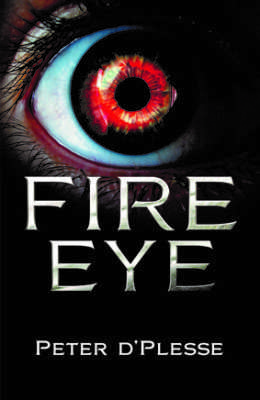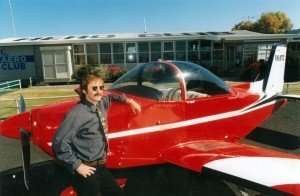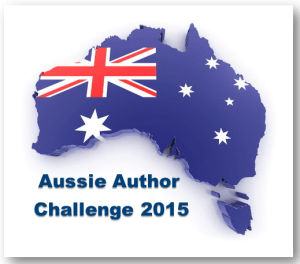Peter d’Plesse, author of Fire Eye – Interview and Book Giveaway
Today we welcome Peter d’Plesse, Aussie author of Fire Eye to Booklover Book Reviews.
 Fire Eye Synopsis:
Fire Eye Synopsis:
ADVENTURE TURNED NIGHTMARE.
How did Alexander Dulaine’s search for a lost aircraft become a life and death struggle in the unforgiving Australian landscape?
Alexander Dulaine is a woman on a mission. To honour her grandfather’s memory, she engages Jed, a capable bushman, to help her find the wreckage of her grandfather’s aircraft, lost during World War II in Northern Australia. It has a connection to the Torres Strait legend of the ruby ‘Fire Eye’.
But they are not alone on the search. A sociopath intent on revenge is closing in …
What inspired you to write Fire Eye ?
Stories associated with lost aircraft from World War II have always been of interest to me. Northern Australia has a fascinating history that is often unappreciated. The idea of an adventure novel set around the history and landscape of Northern Australia was a project on my bucket list. A challenge was offered to tell the story of a woman driven to the very edge of survival. I knew enough about that story to see the opportunity to combine the two and create a novel of the thriller genre.
Would you say Fire Eye is plot or character driven?
Fire Eye is a thriller written from multiple perspectives. It is driven by both the plot and the characters. While the overall plot is unique in terms of an Australian thriller novel, the characters shape the twists and turns of the story line. As in real life, individual human choices influence the direction of the plot, sometimes just by random chance. In life a simple choice to buy a coffee or turn left or right can mean the different between life and death. The characters in Fire Eye make the best decisions they can but small decisions or actions have unanticipated consequences. The multiple perspective approach was the best way to present this to the reader. If I had to choose, I’d lean more toward the story being character driven because the characters make the story.
Tell us a little bit about your main character?
The main character must be Alexander Dulaine. Her past actions drive the plot and her recent decisions kick start the story line. After breaking away from an abusive relationship she decides to reconnect with the world by searching for her grandfather’s aircraft lost during World War II. She is intelligent and strong willed. She can take physical pain but is vulnerable to emotional hurt. Jed Mitchell, the man she engages to help her, opens a new world to her. He makes a decision that saves her life but breaches the trust between them. She must tap all her inner strength to finally deal with her tormentor. In doing so, she learns her own lessons about trust and the responsibility that goes with it.
What type of reader do you think would most enjoy Fire Eye?
Fire Eye is written for the reader who enjoys novels by Wilbur Smith, Tom Clancy, David Rollins, Stephen Hunter or Tony Park. Readers will enjoy an adventure or thriller novel in which the action is as close to real life as possible. The plot does not require a super hero to work. The story involves ordinary people doing their best to survive extra-ordinary circumstances. As in real life, the impact of inconsequential actions and random chance plays its normal part. Fire Eye is written as entertainment but contains themes such as trust, loyalty, justice and right and wrong that are open to deeper analysis.
Adventure novels are characterised by a ‘quest’. Fire Eye has four intertwined quests – the search for Karl and his aircraft, the ruby Fire Eye, the need for Alex to resolve her past and the resolution of the tension between Alex and Jed involving stability, security, respect and trust.
How does this title compare to others you have written?
Fire Eye is my first novel. I have written about forty articles on education, survival, hunting, the outdoors and general interest for national and international magazines. A common thread running through these articles and Fire Eye is that the content is based on first hand experience. This benefits the reader in that the story and action in Fire Eye is as real as possible. Fire Eye has another common thread with many of the articles I have written. The landscape of Australia is an essential character in the story.
Can you tell us a bit about your writing process?
Writing any novel is a mammoth task. One doesn’t really understand what is involved until actually doing it. It took three years to get Fire Eye to a stage where it could be offered to an editor. Sharing one’s writing is a high risk move. Writing anything is very personal and offering it up for scrutiny is a scary thing. It must be done if the work is to move forward. Fire Eye progressed through three editors who enjoyed the story and made valuable contributions for improvement. It’s hard for a writer when an editor recommends deleting a paragraph that was the product of so much time and effort but that’s what editors are for.
 For me, writing in the early evening works well. Everyone has their own preference. I found early evening is effective because the day could be spent getting jobs done. The slow cooker is put on to generate delicious flavours to a background of music while I get into the mood to write. Two effective hours are far better than lots of time hunched over a laptop producing little of consequence. Even while doing jobs during the day, my mind ticks over in the background ready to produce when called upon. Every writer has their own preference for effective time. Once found, stick to it.
For me, writing in the early evening works well. Everyone has their own preference. I found early evening is effective because the day could be spent getting jobs done. The slow cooker is put on to generate delicious flavours to a background of music while I get into the mood to write. Two effective hours are far better than lots of time hunched over a laptop producing little of consequence. Even while doing jobs during the day, my mind ticks over in the background ready to produce when called upon. Every writer has their own preference for effective time. Once found, stick to it.
While much of the action in Fire Eye is based on personal experience, a lot of time had to be spent researching the indigenous aspects of the story. It was important to get the right balance between the reality of conditions in some communities and the obvious pride and competence that I have experienced in dealings with Aboriginal people. A big challenge was to find a way to communicate the complexities of right and wrong and all the grey areas involved. The story of Jimara achieved this and was the result of extensive reading in the area.
What do you do when you’re not writing?
In another life I was a school principal. That role occupied 12 – 16 hours a day. I was able to retire at a reasonable age so I still have the fitness to indulge my interests. Photography, writing articles, cooking, flying, renovating and exploring tend to fill the days. I also enjoy hunting and fishing to harvest the purest of food to create recipes that tempt the palate. The first thing I did after retirement was to go back to New Zealand and the Douglas Valley where during my university years I was a deer culler for the National Parks Board. After thirty seven years the mountains certainly seemed steeper, the glaciers more dangerous and the river crossings a lot colder but I managed to get up and down in one piece. A favourite place is the red soil landscape of the outback. The isolation stimulates thought and its unforgiving nature demands competence.
Do you have any other titles in the pipeline?
Alex and Jed have much between them that is still unresolved. I would like to write a follow up novel where these issues can be explored. I have actually started. Whether I finish it and offer it to the reader is an open question. Australia has a rich history of wonderful stories that tempt the writer to capture in a novel.
What were the biggest challenges for you in writing Fire Eye?
The characters in Fire Eye were inspired by people I have had the pleasure or misfortune to meet. Assembling them into a story line wasn’t as difficult as I expected as they fit together almost naturally. A bigger challenge was including the essence of the Australian landscape as a background character to the story. When alone among the silence and vastness of the country, the landscape has a haunting beauty. It can also be totally unforgiving of a mistake or bad decision. The landscape is a subtle but powerful character that shapes the plot and the people in the story. Another challenge was to capture the relationship between Alex and Thor, the quarter horse. Alex has issues with trust and loyalty. For her to survive she has deal with these. Forging a relationship with Thor is an essential step in achieving this. Capturing this relationship could not have been achieved without closely watching a master horsewoman at work.
Do you have any tips or advice for aspiring writers?
Writing anything is hard work. Writing a novel is a massive task. If someone wants to do it, my advice is to go ahead and do so. Even without publishing, the personal satisfaction alone makes the effort worthwhile. There are many options these days to get published. Just before I decided to publish Fire Eye, I had a conversation with a well known author with a string of published novels. Her advice was simple – just do it.
Fire Eye is available from:
Short Stop Press | Booktopia | Bookworld | Amazon | Kobobooks
Peter d’Plesse has explored the mountains, jungle and desert of the Australian landscape over many years. He has written numerous articles on education, the outdoors and aviation and is a private pilot rated for aerobatics and formation flight. Peter lives in Tasmania and Fire Eye is his first novel.
♦
Disclosure: If you click a link in this post we may earn a small commission to help offset our running costs.
Book Giveaway
To celebrate the release of Peter d’Plesse’s Fire Eye, Short Stop Press has provided 1 paperback copy for giveaway, AND if more than 20 people enter the draw they’ll add another copy to the prize draw so that there can be 2 winners!
- Australian / New Zealand mailing addresses only
- extra entries for spreading the word via Twitter and Facebook/Google+/Webpage
- extra entries for registered participants of the Aussie Author Challenge 2015 – there’s still plenty of time to sign-up!
- entries close midnight 19 May 2015
- the winner(s) will be randomly selected and must respond to my email requesting their mailing address within 5 days otherwise their prize will be forfeited and another winner selected
SORRY, ENTRIES CLOSED – The winner is Robert Cassidy.

